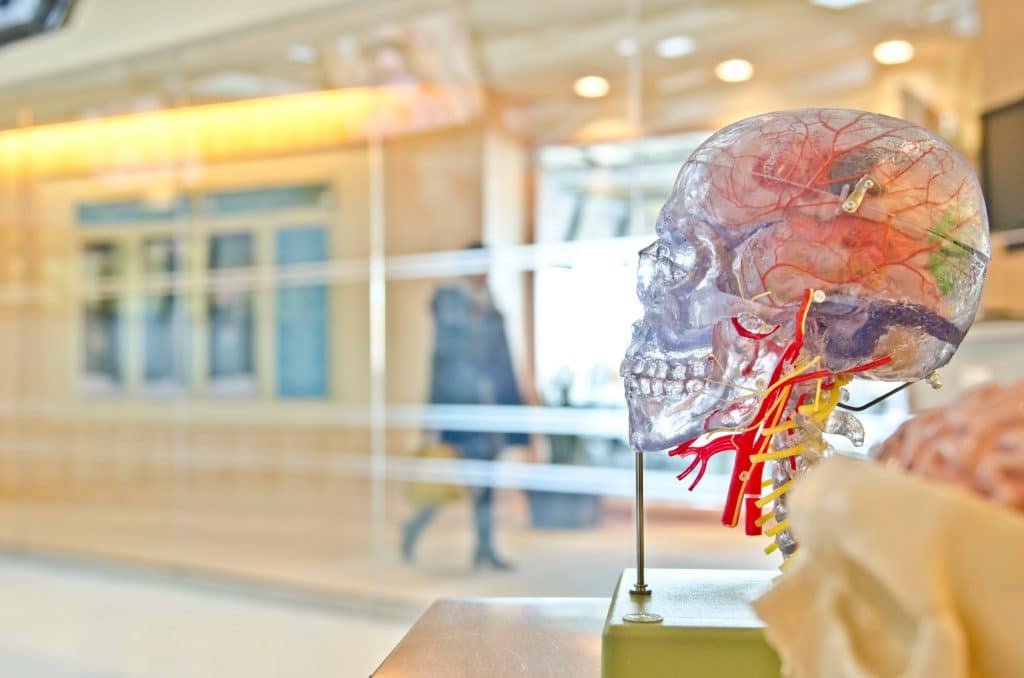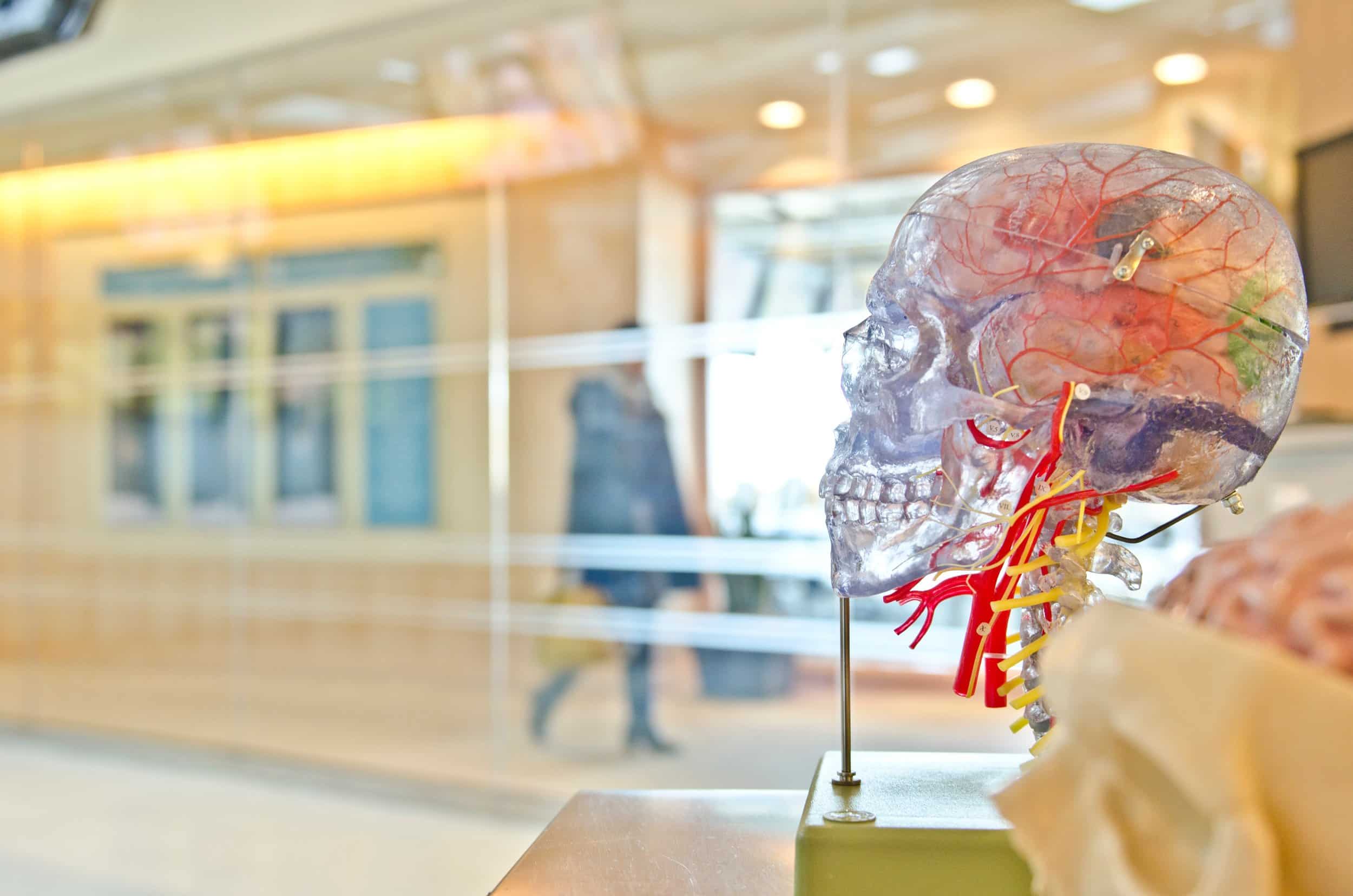
Forget About It
Emily Artus, The Vision Magazine Art Director
Photo courtesy of Unsplash.com
Magenta. Textbook. Tweezers. Santa Barbara. Carnation. Pennant. Portuguese. Arugula. Buttonhole. Penguin. Alphabet. Plaid.
What do the words in this list have in common? Look them over for 10 seconds and see what you can discover.
Did you find the answer?
Actually, there isn’t an answer; these words have absolutely nothing in common.
So here’s another question.
Can you remember the second word in the list (without looking back)?
If you couldn’t (and most people couldn’t), why couldn’t you?
Was it not important enough? Did you not have enough time to look them over? Why is it you can remember hundreds of song lyrics but have to write down your 10-item shopping list? Why can you remember arbitrary digits of phone numbers? Or do you not even memorize phone numbers anymore?
Why does memory work the way it does?
And how can you remember everything from magenta to plaid?
In his book “Moonwalking with Einstein,” Joshua Foer, a journalist, describes attending a memory competition while on an assignment. Contestants were tasked with memorizing a 1000 random numbers in five minutes, 99 headshots of people with accompanying names in 15 minutes and a shuffled deck of playing cards in five more minutes.
And they actually could memorize it all.
When Foer asked Ed Cooke, a champion contestant, if he’d always been a genius, Cooke responded that he actually had a pretty average memory.
All the contestants had average memories.
Average memories are just more powerful than you might think.
Long before iPhones, PDAs and even pencils and paper, humans remembered everything: from everyday tasks to the details of critical historical events. Humanity preserved its legacy through oral tradition and basic memory techniques. They internalized and categorized huge amounts of information through mnemonic devices, the method of loci, chunking and memory palaces.
However, as technology advances, the importance of internalized memory decreases.
“The externalization of memory not only changed how people think,” Foer writes. “It also led to a profound shift in the very notion of what it means to be intelligent.”
Today, intelligence emphasizes the ability to efficiently mine information and data from the ocean of online and print sources.
At some point in any class you’ve taken over the past 10 years, a classmate has inevitably asked the teacher the two-decade-old question: “Why do I have to learn the quadratic formula/periodic table of elements/parts of speech if I can just look it up online later?”
And this attitude has crippled modern society in a sense.
“Imagine waking up tomorrow and discovering that all the world’s ink had become invisible and all our bytes had disappeared,” Foer writes. “Our world would immediately crumble…. Our culture is an edifice built of externalized memories.”
So if you want to fight against the externalization of memory and maybe help your Human Bio grade a bit, could you? Foer became a memory champion himself—entering the 2006 U.S.A. Memory Championship.
So, really, anyone can do it.
But like any learned skill, becoming a master memorizer involves practice.
Shannon Dobson, a psychology professor at North Greenville University, wishes she could teach every incoming freshman to learn how to learn.
“Effort is what’s really important,” Dobson explains, softly pounding her desk. “You don’t have to pop out with a fabulous memory; you just have to work hard at it.”
Dobson stresses that every brain is different and suggests working harder to learn, even if your own style of learning takes time.
Throw out your flashcards and highlighters, she adds. Find new ways to study. Watch YouTube videos illustrating the process you’re learning. Come to class having read the chapter already. Self-reference the material and think of your own examples.
“The student who just memorized out of the book isn’t going to remember as reliably,” Dobson says. “Relating things to yourself is a very deep level of processing.”
She also suggests learning about different retrieval cues, such as chunking and priming. These cues will help direct your memory and help you easily information from long-term memory.
In his book “The Guardian of All Things,” Michael Malone describes the method of loci, a practice the ancients used to remember. Philosophers like Cicero and Simonides would think of a familiar place and attach new memories to objects in that mental place.
“Because the human mind tends to remember extreme images and emotions of the common,” Malone writes, describing the final key to the method of loci. “…When mentally attaching a new memory to an old location, the thinker has to use the boldest strokes possible—preferably in some symbolic or mnemonic way.”
For example, to remember three items in the opening list (magenta, textbook and tweezers), imagine placing them in the Caf. As you enter the Caf, the first thing you see is a polka-dotted, purple puppy swiping ID cards. After she swipes your ID, you turn right toward the salad bar, where an Aramark employee dices up books and dumps them into the spinach container. You grab some paper salad and go to grab a fork, but the flatware containers only have chopstick style tweezers for utensils.
Magenta. Textbook. Tweezer.
Start by using the method of loci to remember your shopping list. Then, a list of elements for your chemistry quiz. Then, your fully-memorized, 10-minute long speech for Oral Comm.
Memory is powerful, and your memory can be improved. Practice. Utilize age-old methods. And start moving some of those externalized memories from your laptop into your mind.
So, what was the second word in the list again?

